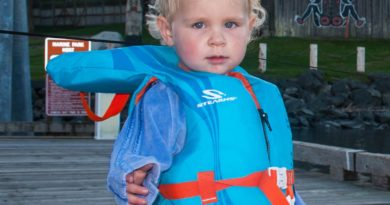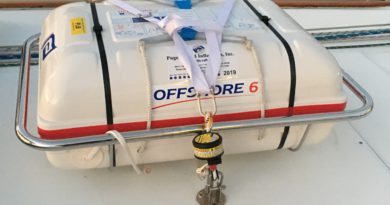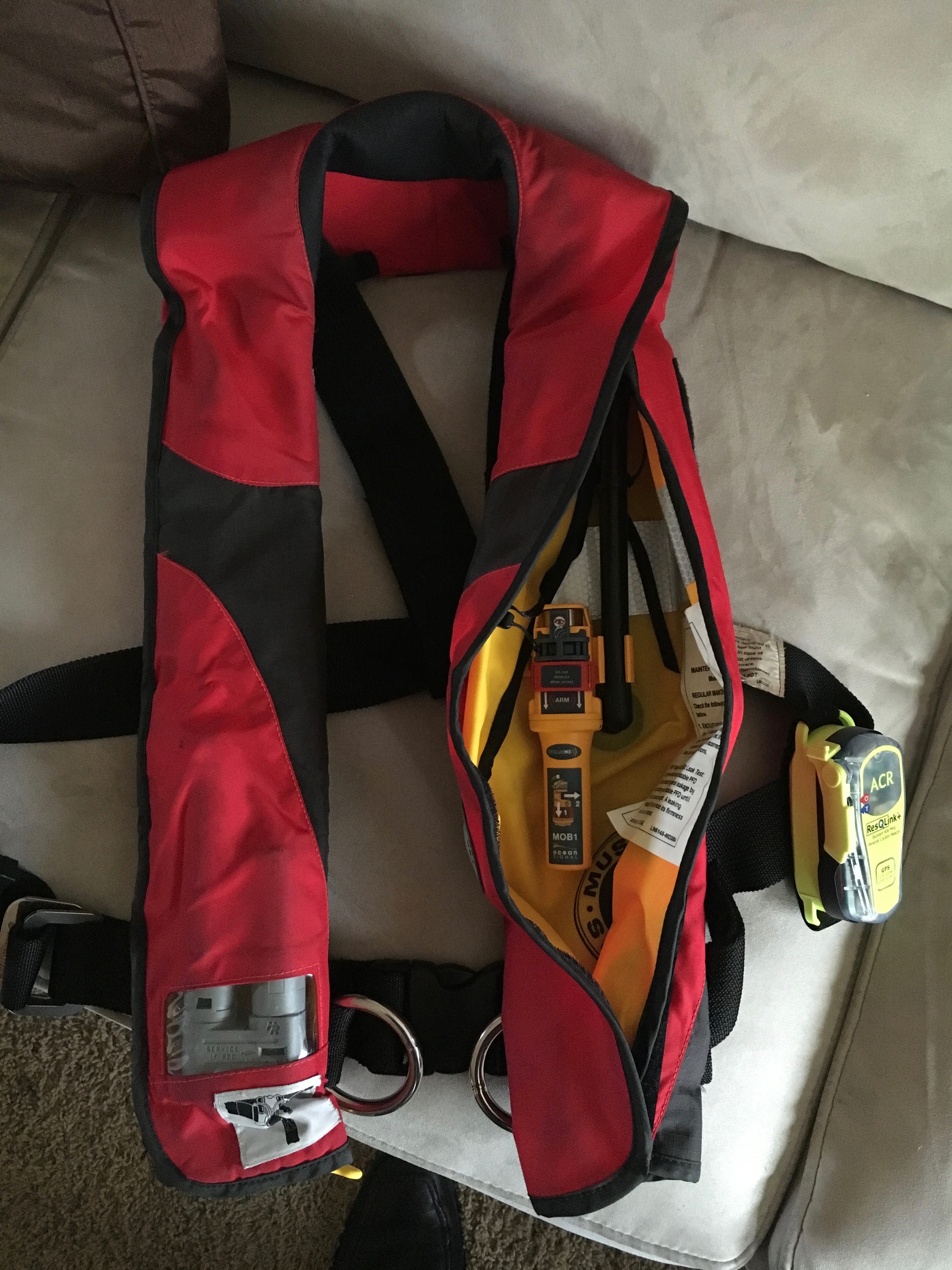The Fallacy of relative safety…
A couple of days ago I heard, through Twitter, Facebook, and eventually CNN about the 1-year-old girl who was very sick on a sailboat 1000 miles west of Mexico, in the Pacific Ocean. I clamored for information both online and in the news about the details of the sickness and how search and rescue teams were handling the situation. The good news is that the Kaufman family is now on board a Navy vessel and their 1-year old daughter is stable and being treated. The bad news is that their sailboat, which was also their home, was scuttled by the Navy because it was taking on water.
On Facebook and other places, the reaction from the general public about the “irresponsible” and “selfish” choice to take a 1-year old and 3-year old out in a sailboat was frenzied. It was clear that most of those commenters have little experience with sailboats, cruising, and particularly offshore cruising. These same people also have no idea what sort of preparations this family has gone through before making this decision and casting off. The husband is a Coast Guard licensed Captain, cruising boats have a medical kit on board that is more akin to what you’d find in an ambulance than in a home, most cruisers have taken classes on field triage and medical care, this family has been ocean sailing for 7 years, and they have a well-respected, stout vessel. When you consider that they experienced multiple failures including loss of communications and loss of propulsion or steering, and were battling a rash/fever of a one year old that they could not treat with antibiotics and other methods, calling for help was the appropriate choice. And because of their preparation and planning, the entire family is safe, alive, and recovering.
- I have to wonder, if one of the parents had the same rash and untreatable sickness instead of their child, and they made the same distress call, and had the same resulting rescue, would the general public be so adamantly calling for a CPS investigation? The reality is that people (adults and children alike) get sick sometimes, and you can’t predict when, where, or how.
Approximately 500 sailboats cross the South Pacific each year and while I can’t find statistics for the number of those that had to be rescued, I believe it to be very small, i.e. maybe about 1 per year on average. I did find statistics on boating in general however. There are 12.5 million registered boats in the US (nmma) and the Coast Guard reports they perform approximately 109 S&R operations per day on average.(uscg) So you have about 0.3% chance of being rescued by the Coast Guard in a given year. Further, the Coast Guard also shows that of 5900 total boating accidents in 2012, sailboats were only involved in 330 of them. (uscg) Those 330 accidents resulted in 27 deaths and 84 injuries across the entire US. Still think sailing is dangerous?
By comparison, there are 2 million injured persons per year as a result of ~4100 injury automobile accidents per day in the US (nhtsa) among 254 million registered passenger vehicles (wikipedia). So you have a 0.79% chance of being injured in a car accident in a given year. That doesn’t even count the 30,000 automotive fatalities per year.
- Think about this for a moment… You have more than double the risk of being injured in a car accident than needing to be rescued for any reason by the Coast Guard. FYI the number of “lives saved” per day by the Coast Guard is about 10, so only a 0.003% chance of needing your life saved by the Coast Guard.
Let’s shift a bit and think about all the people who were at home who lost their lives when a sudden mudslide tragically obliterated their neighborhood (komonews), or the dozens killed and injured minding their own business at home when leaking natural gas from the pipelines near their seemingly safe homes exploded. (naturalgaswatch) How about the 239 people who have disappeared while relying on one of the safest methods of transportation in the world, riding in a Boeing 777 known as the safest airliner ever built (nbcnews), operated by a trusted airline (reuters), and manned by an experienced crew.
None of the people injured or killed in these automobile accidents, flying in an airplane, or sitting at home in their living rooms would be derided for engaging in risky behavior, and yet they all fared far worse than this one adventurous family — culminating in the loss of lives, adults and children alike.
Given the choice of risking you and your family’s lives while sitting at home, driving to/from school in your SUV, and flying to Disney World for your annual vacation, versus dealing with the same (and possibly less overall) risk while experiencing parts of the world that few have seen, experiencing a real challenge as a family, teaching your children how to be self-sufficient, how to integrate with other cultures, and how to react calmly and clearly to unexpected events, while leaving practically zero carbon footprint in your wake.. What would you chose? Personally, I chose the latter.
Kudos to the Kaufmans for pursuing an adventurous life rather than following the norm. Hopefully they will quickly recover from this set back, ignore the armchair quarterbacks, and continue in the life they’ve chosen. And a huge Thank You to the Air Force, Coast Guard, Navy, and the pararescuers involved in their rescue.





Well written Rich!
Thanks! As I was just mowing the lawn I thought of several other things I should have included, but it’s fine as is.
Well said. .could not agree with you more!! Mim
One further datum regarding the 2012 USCG SAR statistics, there were reported a total of 4 accidents off the Pacific coast occuring >3 miles off shore. This represents 0.08% of the total USCG rescues for that year. Well written piece, Rich..
Thanks for the Stats!